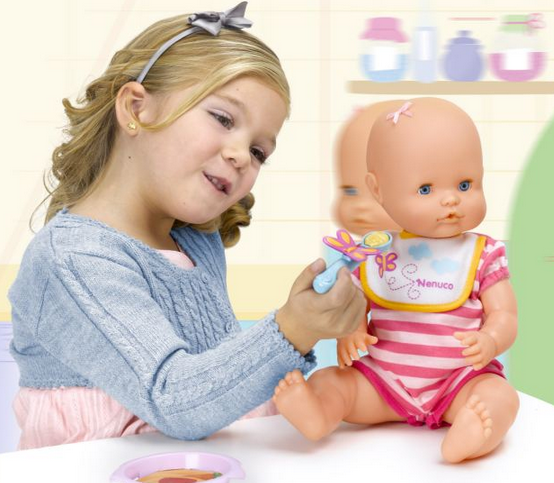'Anorexic' Doll Should Be Banned, Campaigners Say; 'Nenuco Won't Eat' Toy Promotes Eating Disorders

Health care professionals in the UK are outraged by the intended sale of “Nenuco Won’t Eat” — a doll which they say promotes eating disorders. Experts are weary over what they call an “anorexic" doll, but its manufacturer, Famosa, says the doll is just meant to “represent real-life play.”
“We urge the manufacturers to think more responsibly and be aware of the fact that children are incredibly receptive, and that negative attitudes to food can be easily formed and take many years to break,” Policy Manager at YoungMinds, Chris Learman, told the Daily Mail. “Our campaign YoungMinds Vs revealed earlier this week that four out of 10 children and young people have skipped meals to stay thin.”
“Nenuco Won’t Eat,” which is already sold in locations across Europe and is expected to hit shelves in the UK this upcoming February for a reported American equivalent of $57.95, was first unveiled at Wednesday’s London Toy Fair. As the child tries to feed Nenuco, a magnet in the toy’s spoon causes the head to turn away from the child. Only when the child aligns to spoon in the correct position will the doll accept the food.
While a Famosa representative said the Spanish toy company is “100 percent about real life experiences,” many parents and mental health practitioners are worried the doll’s refusal of food could promote eating disorder tendencies among children. Critics are worried children at an impressionable age will pick up on the doll’s refusal towards food and will relate it to their negative self body image.
“The doll is designed to re-enact the play between a parent and a child,” marketing director for Famosa, Nikki Jeffery, told the Daily Mail. “The idea is that the child understands that the doll is being mischievous, and that the child encourages the doll to eat the food, just as a parent does with their child. We believe the doll will teach children the value of eating healthily as it is eating fruit and vegetables.”
According to the National Health Service, eating disorders are defined as an abnormal attitude toward food, which causes unhealthy eating habits. The most common types of eating disorders include binge eating, bulimia, and anorexia nervosa. Approximately one in every 250 women and one in 2,000 men will develop anorexia nervosa at some point in their life, usually around the age of 17. People with anorexia will do anything in their power to remain at their lowest weight possible, including starvation and excessive exercise.



























